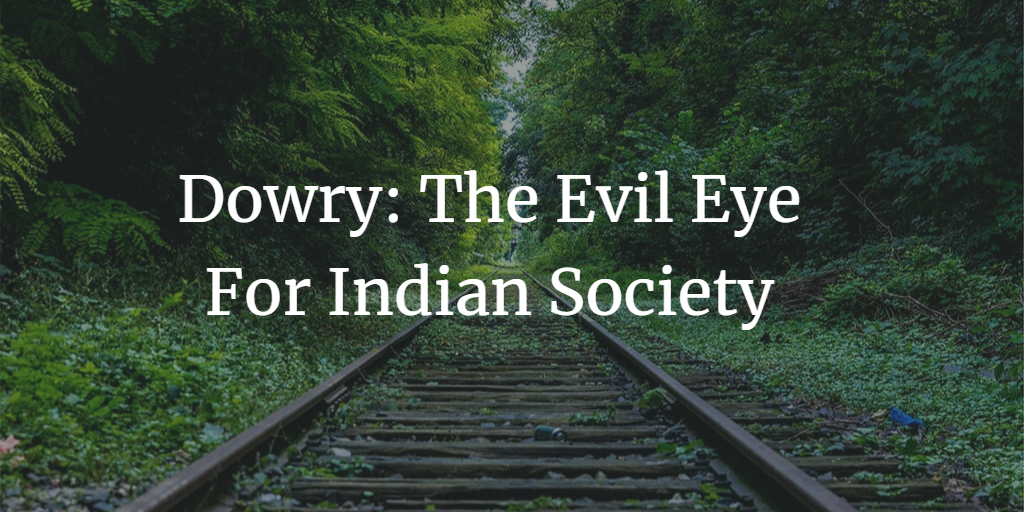Dowry: The Evil Eye For Indian Society

Table of Contents
Introduction
The History of Dowry
Impact on Women and Society
Legal Framework against Dowry
Challenges in Combating Dowry
Recommendations
Conclusion
Introduction
Dowry is an age-old social practice that continues to haunt Indian society. It refers to the transfer of property, money, or other valuable assets from the bride's family to the groom's family during marriage. Despite being outlawed, dowry remains a pervasive issue with detrimental consequences for women and society as a whole. This article delves into the history, impact, and legal framework surrounding dowry, as well as the challenges and recommendations for eradicating this social evil.
The History of Dowry
Dowry has deep historical roots in Indian society, dating back to ancient times. It was initially intended as a means to provide financial security to the bride in her new marital home. However, over time, the practice has devolved into a socially sanctioned form of extortion, placing an undue financial burden on the bride's family and perpetuating gender inequality.
Impact on Women and Society
The consequences of dowry are far-reaching and profoundly affect women and society:
Gender discrimination: Dowry reinforces gender inequality by treating women as commodities to be bought and sold.
Economic burden: The financial strain of dowry can lead to indebtedness and impoverishment for the bride's family.
Domestic violence and abuse: Brides may face harassment, abuse, and even death if their dowry is deemed insufficient by the groom's family.
Female infanticide and sex-selective abortions: The fear of dowry obligations can contribute to female infanticide and sex-selective abortions, skewing the gender ratio in India.
Legal Framework against Dowry
India has enacted several laws to combat dowry:
The Dowry Prohibition Act, 1961: This Act prohibits the giving or taking of dowry and prescribes penalties for offenders, including imprisonment and fines.
Indian Penal Code (IPC): The IPC criminalizes acts of cruelty against a woman by her husband or his family (Section 498A) and dowry deaths (Section 304B).
Protection of Women from Domestic Violence Act, 2005: This Act provides for civil remedies, such as protection orders and monetary relief, for victims of domestic violence, including dowry-related abuse.
Challenges in Combating Dowry
Despite the legal framework, dowry remains a pervasive problem in India due to several challenges:
Social acceptance: Dowry is deeply ingrained in Indian society, making it difficult to change mindsets and cultural norms.
Ineffective law enforcement: Corruption, lack of resources, and inadequate training hamper the effective implementation and enforcement of anti-dowry laws.
Under-reporting: The stigma and fear of social backlash discourage victims and their families from reporting dowry-related crimes.
Recommendations
To eradicate dowry from Indian society, the following recommendations can be made:
Awareness and education: Conduct nationwide awareness campaigns and educational programs to inform the public about the legal provisions and consequences of dowry. Encourage schools and colleges to include discussions on dowry and gender equality in their curriculum.
Community engagement: Engage community leaders, religious institutions, and civil society organizations to promote social change and challenge the cultural norms that perpetuate dowry practices.
Strengthen law enforcement: Improve the capacity and training of law enforcement agencies to effectively investigate and prosecute dowry-related crimes.
Support services for victims: Establish dedicated helplines, legal aid services, and counseling centers to assist victims of dowry harassment and abuse.
Incentivize dowry-free marriages: Encourage dowry-free marriages through financial incentives, public recognition, or other benefits for families that reject dowry demands.
Conclusion
Dowry is a social evil that continues to plague Indian society, perpetuating gender inequality and causing immense suffering for countless women and their families. Eradicating dowry requires a multi-pronged approach involving legal reforms, public education, community engagement, and support services for victims. By working together, we can create a more equitable and just society where every individual is valued and respected, regardless of gender.


